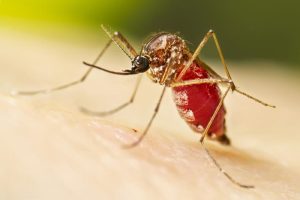NewsDesk @bactiman63
Nepal’s Ministry of Health and Population reports as of October 17, a total of 41,743 dengue cases have been identified, with Bagmati province reporting highest number (32494) followed by Lumbini province with (4399).

To date, 49 deaths due to dengue are verified.
Dengue is a viral infection transmitted to humans through the bite of infected Aedes mosquitoes. Dengue is widespread throughout the tropics, with local variations in risk influenced by climate
parameters as well as social and environmental factors.
Dengue is caused by a virus of the Flaviviridae family and there are four distinct, but closely related, serotypes of the virus that cause dengue (DENV-1, DENV-2, DENV-3 and DENV-4). Recovery from infection is believed to provide lifelong immunity against that serotype. However, cross-immunity to the other serotypes after recovery is only partial, and temporary. Subsequent infections (secondary infection) by other serotypes increase the risk of developing severe dengue.
All 4 dengue serotypes exist in Nepal, with DENV-1 and 2 historically contributing the highest burden.
Subscribe to Outbreak News TV on YouTube
- Nigeria reports more than 10,000 suspected cholera cases in first nine months of 2022
- Chicago: Two deaths due to monkeypox reported
- Brazil: Mosquito-borne disease increases in 2022 prompts national campaign to combat the Aedes aegypti
- Rift Valley fever in Mauritania: WHO details
- Uganda MOH: ‘Ebola outbreak is coming under control’, Latest tally is 65 cases and 27 deaths
- Lebanon reports 80 additional confirmed cholera cases
- Haiti: Confirmed cholera cases top 100
- Canada: Shigella outbreak reported in Edmonton

